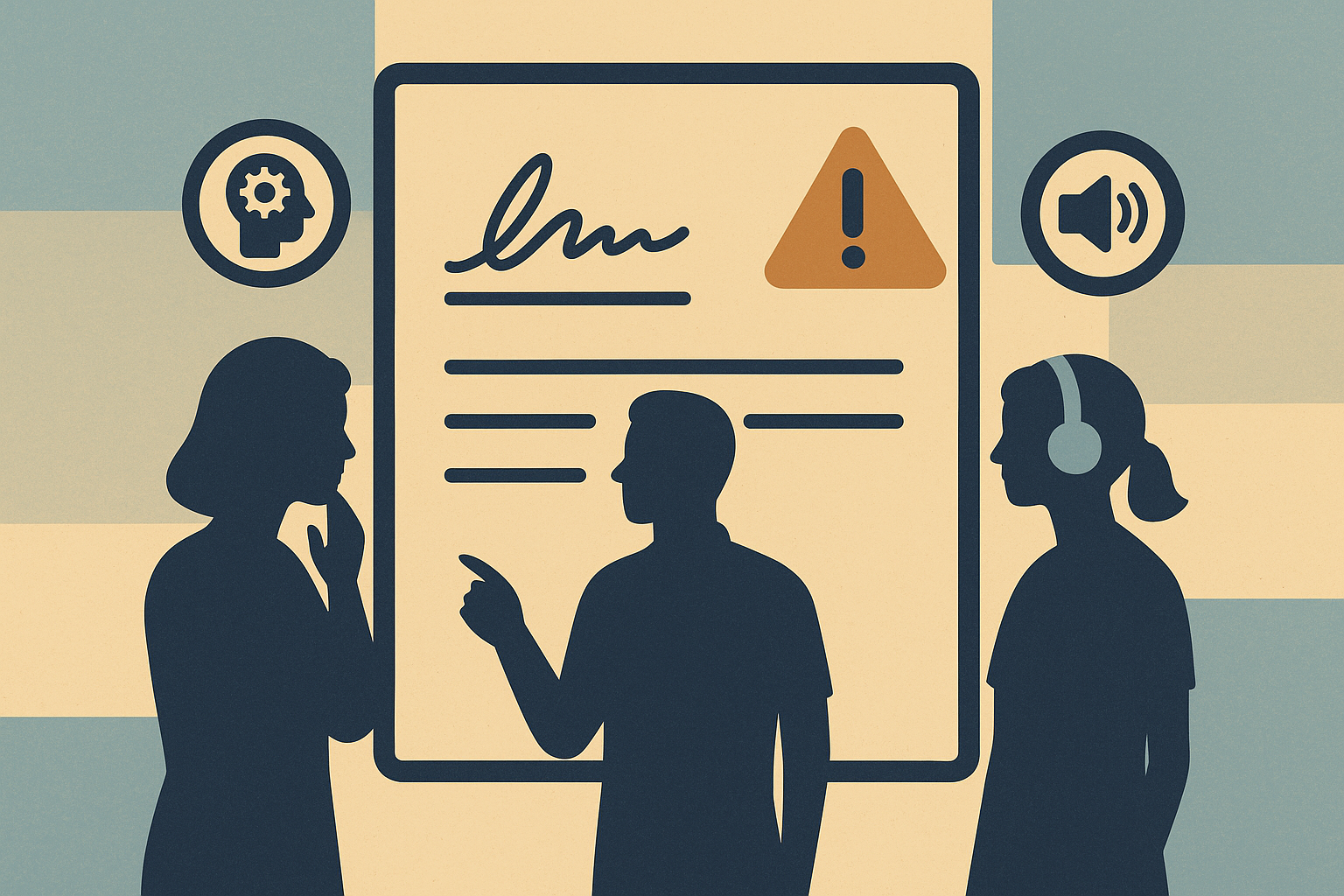In this blog, we’ll explore:
- Introduction
- How do you build trust?
- Why trust is your greatest asset
- The role of social media in building trust
- Conclusion
Introduction
Trust is the confidence or belief in the reliability, integrity, and honesty of a person or brand. It’s built over time through consistency, transparency, and dependability. In a business context, trust means that customers feel secure in your ability to deliver on promises, act in their best interest, and maintain open and honest communication. It reduces uncertainty and creates long term relationships, making it one of the most valuable assets a company can have.
Trust is the foundation of any strong business relationship. It is not just a personal skill, but influences customer retention, referrals, and long-term success. Studies have shown that businesses with high levels of trust experience greater customer loyalty and revenue growth. According to the Edelman Trust Barometer, 81% of consumers say they need to trust a brand before making a purchase. This blog explores actionable ways to build trust with customers and why it is your most valuable asset.
How do you build trust?
Trust is one of the most fundamental parts of any relationship, whether between two people or between a business and its customers. It’s not something that happens overnight, it’s built over time through consistent actions, honesty, and genuine care. The way we build trust in our personal lives isn’t all that different from how businesses should build trust with their audience. In fact, companies that truly earn long term loyalty are the ones that operate more like a trusted friend than a faceless corporation.
Think about how you come to trust someone in your own life. It’s not just because they say the right things, it’s because they’ve proven that they are trustworthy. They show up when they say they will, they keep their promises, and they prove that they can be relied on. When someone constantly changes their story, makes excuses, or lets you down, you start to doubt them. Businesses are no different. Customers trust companies that consistently deliver on promises, whether that’s the quality of their product, their customer service, or how they handle issues when things go wrong. If a brand constantly shifts its policies, overpromises but underdelivers, or ignores customer concerns, people naturally become sceptical.
Honesty plays a massive role in trust. In personal relationships, we appreciate the people who tell us the truth, even when it’s not easy. If a friend makes a mistake but owns up to it, we’re far more likely to forgive them than if they try to cover it up or shift the blame. The same principle applies to businesses. Customers respect brands that are transparent, even when they’ve made a mistake. If a company is upfront about a delay, a defect, or a policy change, it may not be ideal, but it’s far better than pretending nothing happened or trying to spin the situation. In contrast, when businesses are caught being deceptive whether that’s hiding fees, exaggerating claims, or misleading customers, it breaks trust in a way that’s difficult to repair.
But trust isn’t just about what happens when things are going well. It’s in the difficult moments that trust is really tested. If a friend sticks by you when times are tough, you know they’re a ‘real one” (We think that's what the kids are saying nowadays). The same is true for businesses. How a company handles a crisis, a complaint, or a negative review says everything about its integrity. Some brands will go silent when they receive criticism, or worse, get defensive and dismissive. Others will engage, acknowledge concerns, and take meaningful action. Customers don’t expect perfection, but they do expect accountability. A business that stands by its customers and makes things right when mistakes happen earns trust that competitors simply can’t replicate.
Respect is another important part of trust. In relationships, we trust people who respect boundaries, listen to us, and value our perspectives. No one trusts someone who constantly dismisses their concerns or manipulates them. This is why businesses that respect their customers by being fair in their policies, transparent in their pricing, and honest in their messaging, benefit from stronger customer loyalty than those that rely on tricks and tactics to boost short term sales. Companies that genuinely listen to customer feedback, create a sense of trust that makes people stick around.
To be frank, trust isn’t complicated. Whether between two people or between a business and its customers, it’s built the same way, through reliability, honesty, care, and respect. The businesses that understand this and operate more like a trusted friend, rather than just another brand trying to make a sale, are the ones that build lasting relationships.
Why trust is your greatest asset
Trust strengthens customer relationships and leads to repeat business. A study by the Harvard Business Review found that trustworthy companies outperform ‘shady’ companies by 286%. When customers trust you, they are more likely to choose your services over competitors, even if your offerings are similar. Trust also reduces decision making time, making customers feel more comfortable choosing your services. In highly competitive industries, trust is often the deciding factor that sets businesses apart.
Be transparent and honest
Setting clear expectations from the beginning prevents misunderstandings. Overpromising can damage credibility, so it is essential to be honest about what can be delivered. Transparency also means owning up to mistakes and demonstrating how they are addressed. Research from PwC shows that 87% of consumers will forgive a brand after a mistake if the company is transparent and takes corrective action. Sharing behind the scenes insights, such as processes or decision-making frameworks, helps build openness and reinforces trust.
Deliver consistent value
Customers need to know they can rely on you for high quality work. Consistency in delivering value reassures customers that they have made the right choice. Being proactive in offering insights or solutions, even when not asked, strengthens trust further. Keeping customers informed about progress, updates, and potential challenges ensures they feel involved in the process. A study by McKinsey found that companies providing consistent customer experiences see customer satisfaction rates increase by 20% and revenue grow by 15%.
Communicate clearly and regularly
Timely responses to messages and queries show professionalism and respect for the customer’s time. Clear communication prevents misunderstandings and reassures customers that their concerns are being heard. Active listening is key to effective communication. A report from Salesforce found that 84% of customers say being treated like a person, not just a number, is crucial to winning their business. Keeping communication professional yet personable strengthens relationships and fosters loyalty.
Build social proof and credibility
Social proof reassures potential customers that others have had positive experiences with your business. Testimonials, case studies, and success stories provide tangible evidence of your reliability. Maintaining an active and professional online presence further strengthens credibility. Encouraging satisfied customers to share referrals or reviews can significantly influence new business opportunities. Research from Nielsen shows that 92% of people trust recommendations from friends and family over any other type of advertising.
The role of social media in building trust
Social media has transformed how brands connect with audiences. It is no longer just about polished content but about authenticity. Platforms like Twitter, TikTok, and Instagram reward brands that engage in real conversations rather than just promoting products. According to Sprout Social, 86% of consumers say authenticity is key when deciding which brands to support.
Brands such as Ryanair, Lidl, and Aldi have mastered a playful, direct, and sarcastic approach to social media. Instead of sticking to traditional corporate messaging, they use humour, memes, and reactive content to stay relevant and build trust. This shift proves that being overly professional can create a sense of distance. People connect more with companies that communicate in a human, relatable way.
Engaging in real-time by replying to comments, joining trends, and interacting like a human creates a stronger bond with your audience. Sharing behind the scenes moments, team stories, and even occasional mishaps adds authenticity. A strong and consistent brand personality, whether witty, informative, or bold, makes a brand more memorable. Pushing content such as resharing testimonials and customer posts further enhances credibility and trust.
Conclusion
Trust is not built overnight. It is earned through consistent actions, both online and offline. Modern audiences resonate with brands that prioritise authenticity, transparency, and engagement over rigid corporate messaging. Studies show that consumers prefer brands that feel relatable rather than those that seem overly polished. Personality plays a significant role in building trust. Do not be afraid to show it.
Ready to try it?
Explore how  i agree can help you create contracts people actually understand.
i agree can help you create contracts people actually understand.
Check out our FAQ or try our demo to see how it works




